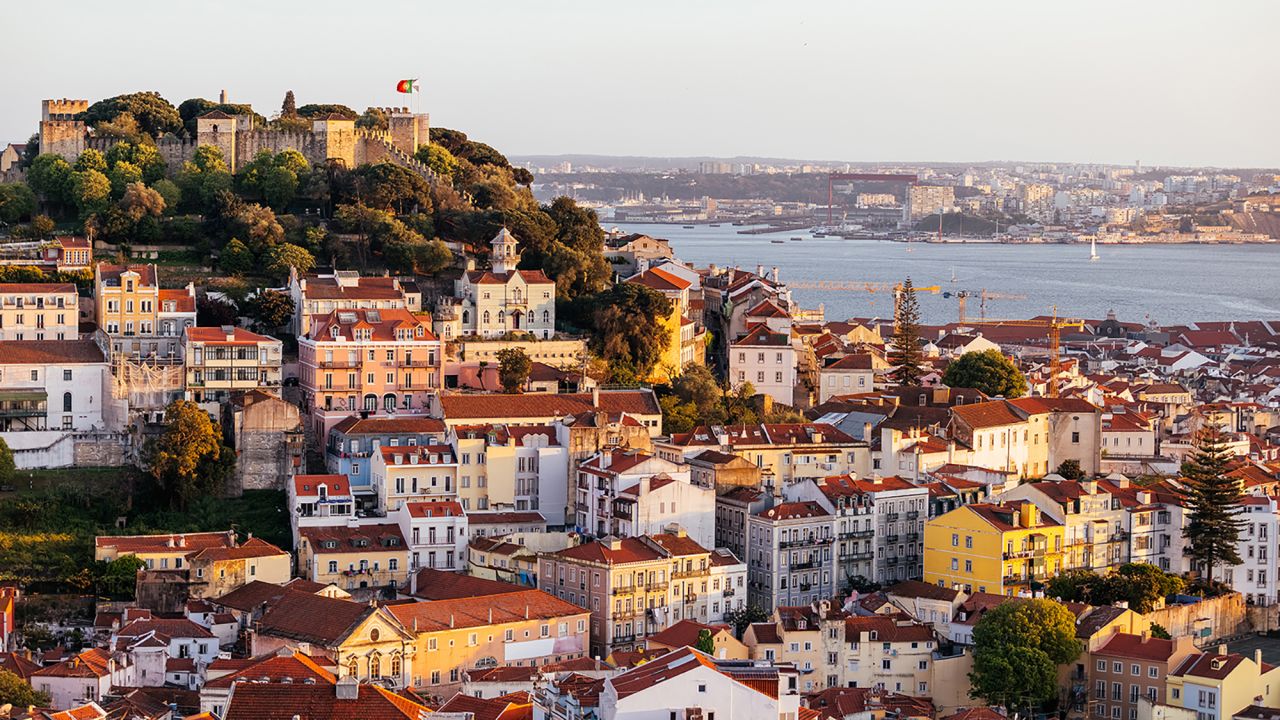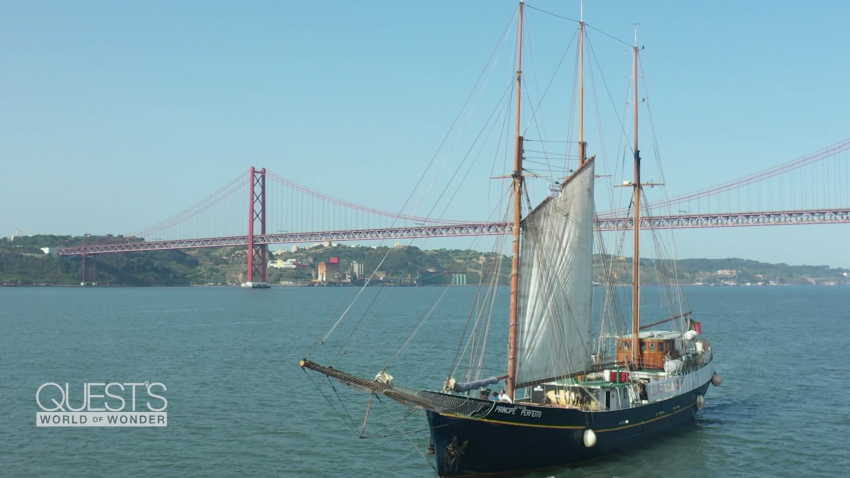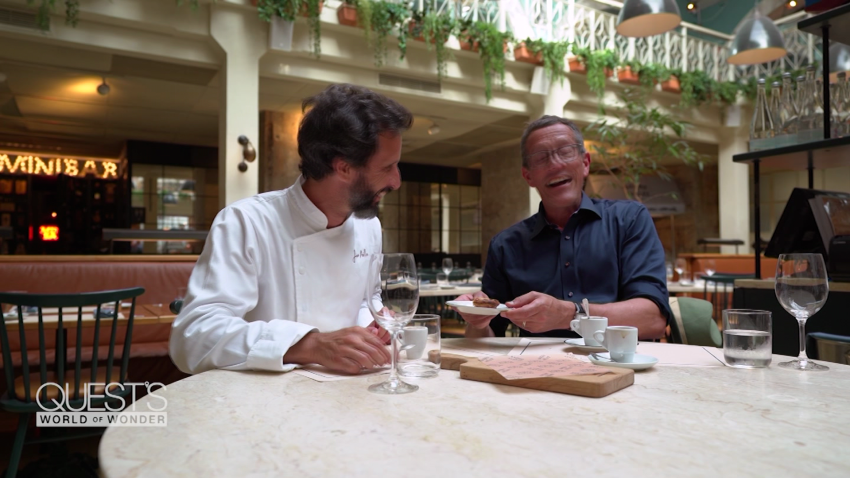CNN
—
Lisbon is in full renaissance. Europe’s final capital of low-cost rents, nice nightlife and exquisite streets, winding their approach up the hills from the Tagus River, have in recent times introduced youthful vacationers having fun with lengthy stays due to “digital nomad” visas.
Consequently, town has acquired a youthful, multicultural and worldwide ambiance, serving to to draw vacationers from all around the world within the course of.
Nevertheless, it isn’t simply those that search to reside and work right here which might be driving this variation.
Stroll the streets of Portugal’s bustling capital and it is unimaginable to flee the sense of confidence within the place.
The inhabitants of the world have actually begun to embrace their Portuguese identification, unashamedly showcasing the perfect of conventional meals and tradition, from scrumptious cream cake pastry store within the Belem neighborhood to the painful sounds of fado in Alfama.

Every part that constitutes what the residents of Lisbon name “soul” or soul, one thing that’s completely distinctive to this excellent place.
Guests can see him on particular nights, such because the Feast of San Antonio on June 13, maybe an important evening in Lisbon’s calendar, when locals have fun their patron saint with lengthy processions that final late into the evening, preceded by of epic meals of sardines and native wine within the streets.
However “soul” goes past one evening.
Come right here at any time of the yr and there’s a feeling that life is to be lived in public. This can be within the bohemian streets of the Bairro Alto neighborhood, the place eating places spill out into slender lanes. Or in ultra-hip locations like Park, a bar atop a multi-storey automotive park that has grow to be synonymous with hipster cool, to not point out unimaginable views. Everyone seems to be welcome and the ambiance stays vibrant till effectively into the morning.

Discovering one other facet of Portuguese fado
Nevertheless, “Alma” is not only hanging out with buddies or having fun with languid meals outdoor. It is usually present in conventional music, particularly fado.
Marrying poetry and singing and born within the streets of the attractive neighborhoods of Alfama and Mouraria in Lisbon, it’s greater than a easy expression of unhappiness and melancholy. It’s relatively, explains fado singer Gisela João, an expression of Portuguese depth and custom.
“I believe Fado, it is probably the most true… since we might be expressing the character of (the) Portuguese nation, the Portuguese,” he says as he walks the streets of Alfama.

João shouldn’t be the archetypal fado singer of outdated. She’s not carrying a black gown and he or she’s additionally youthful than most stereotypical fado singers.
“Why ought to I gown like a lady who grew up within the 40s and 50s?” she asks. “I’m not who I’m.”
She, nevertheless, could be very concerned within the historical past of music.
“I moved right here as a result of I got here to sing at a fado restaurant,” he says. “On this road, for instance, I bear in mind strolling down the road and listening to: fado popping out of the home windows like right here, one right here singing, one other right here… It was as should you have been in the midst of fado. ”
He additionally desires to disprove the concept that unhappiness is what defines Fado.
“For me, (Fado) is about poetry and the poem for me, a really lovely poem, is a poem that may speak about (the) lifetime of everybody… once I sing is once I really feel I can categorical myself.”
That is evident in João’s lovely voice, which echoes by way of the neighborhood. It’s a sound that’s par excellence Portuguese.
“We’re very intense folks,” he says with fun. “We’re very involved. You arrive in Portugal and it is extremely regular that you just meet somebody and that individual instantly invitations you to go residence, have dinner, be with family and friends and arrange an enormous social gathering simply to welcome you… We’re dramatic! ”

Exploring Lisbon’s connection to the ocean
Lisbon can really feel prefer it’s half on land and half at sea, with the vast expanse of the Tagus River main into the huge Atlantic. This, in spite of everything, is a rustic that continues to be fiercely happy with its 500-year seafaring historical past.
Lisbon’s well-known Padrão dos Descobrimentos, Monumento dos Descobrimentos, positioned within the Belem district, on the banks of the Tagus River, pays tribute to the nation’s nice explorers.

Henry the Navigator is depicted alongside historic figures similar to Vasco da Gama and Ferdinand Magellan, a tribute to Lisbon’s place on the middle of maritime discovery within the fifteenth and sixteenth centuries.
Ricardo Diniz, an intrepid solo sailor turned company coach, continues this lengthy custom, bringing the previous into the current.
“We’re very happy with our previous. We achieved one thing unimaginable greater than 500 years in the past, and we’re reminded of this day-after-day,” he says, pointing from the deck of his boat throughout the water.
“We’re on the ocean. We’ve this wonderful river.” When he returns after lengthy sea voyages, he says that his delight swells when he sees Lisbon.
Diniz says that whereas water is essential to Lisbon’s traditions, in addition to its current and future as a contemporary metropolis, modifications in recent times have been pushed by outsiders speaking about how nice this place is.
“Within the final 5 years, particularly, many individuals who come from overseas to Lisbon are stunned by what they discover,” he says. “I believe they’re the true ambassadors of our metropolis and our nation, folks from overseas who communicate extremely of Portugal.”

The chef who defended Portuguese delicacies
Speak to the locals right here and it will not be lengthy earlier than they remind you of the good explorers and the Age of Discovery some 500 years in the past. Nevertheless, there hasn’t at all times been a lot to say about its extra fashionable previous. A lot of that has modified over the previous 20 years, nevertheless, as that sense of confidence has been felt throughout town with Lisbon’s resurgence as a vacationer vacation spot and place to work and play.
That is particularly clear in Lisbon’s gastronomic scene.
Acclaimed chef José Avillez has been championing Portuguese delicacies for years. Fifteen years in the past he started to introduce that humblest of native dishes, the sardine, into his high-end restaurant.

They’re, he says, “… very, very particular, as a result of it is one thing we solely have for 3, 4 months, a yr, at most.
“When the Portuguese (folks) come to a recent Portuguese restaurant… they count on to have fashionable meals, however to have the soul of Portuguese meals. So we have now loads of respect for Sardinia.”
You possibly can’t assist however return to that sense of soul if you’re in Lisbon. It is about, explains Avillez, respecting custom whereas bringing dishes into the long run.
“I might say that Portuguese delicacies, which is handed down from grandmothers to granddaughters, from moms to daughters, is the artwork of mixing flavors with simplicity, with love. (That) is what we attempt to do, even should you do it very creatively and really creatively: if it is advantageous eating, it is a two Michelin star, no matter, what it is advisable deliver your company is one thing scrumptious. And, I’ll say that 90% of the time, very straightforward.
That is true of Avillez’s delicacies, from his easy sardine recipes to his scrumptious steak.

And naturally, no meal in Lisbon can be full with no well-known pastel de nata, the cream cake that comes from Belem. These little treats have gone world in recent times, however they style the perfect proper right here on this glittering metropolis.
Lisbon’s renaissance is one thing to behold, particularly with one thing so scrumptious available. A spot that has modified in so some ways within the twenty first century, however has managed to remain true to its roots, its previous and its fascinating historical past.


